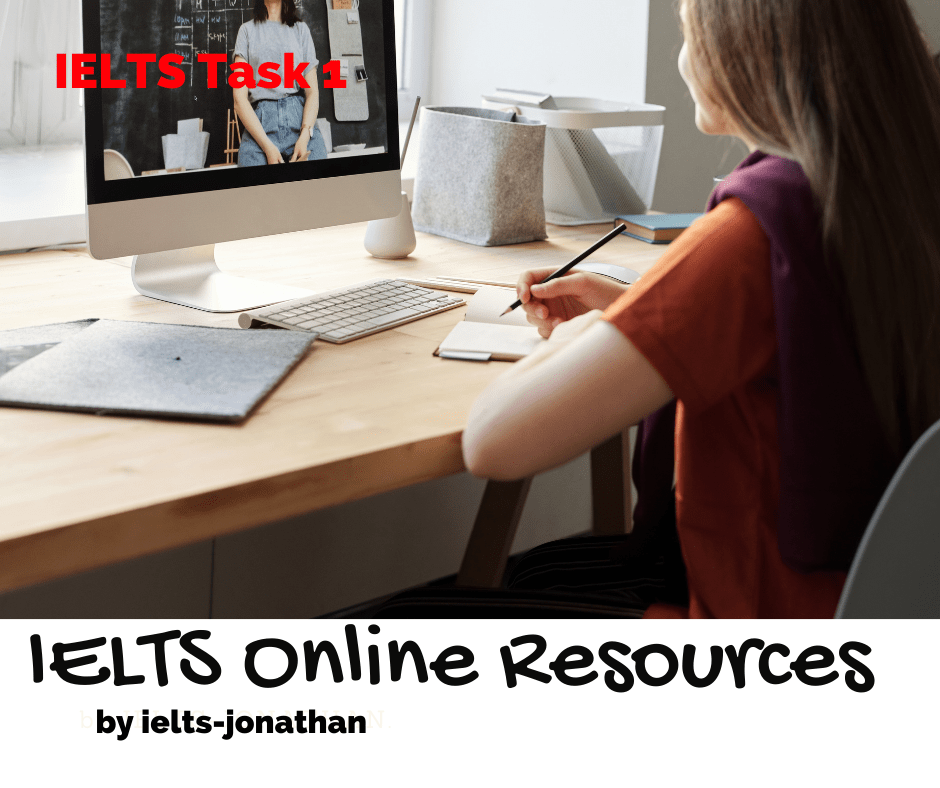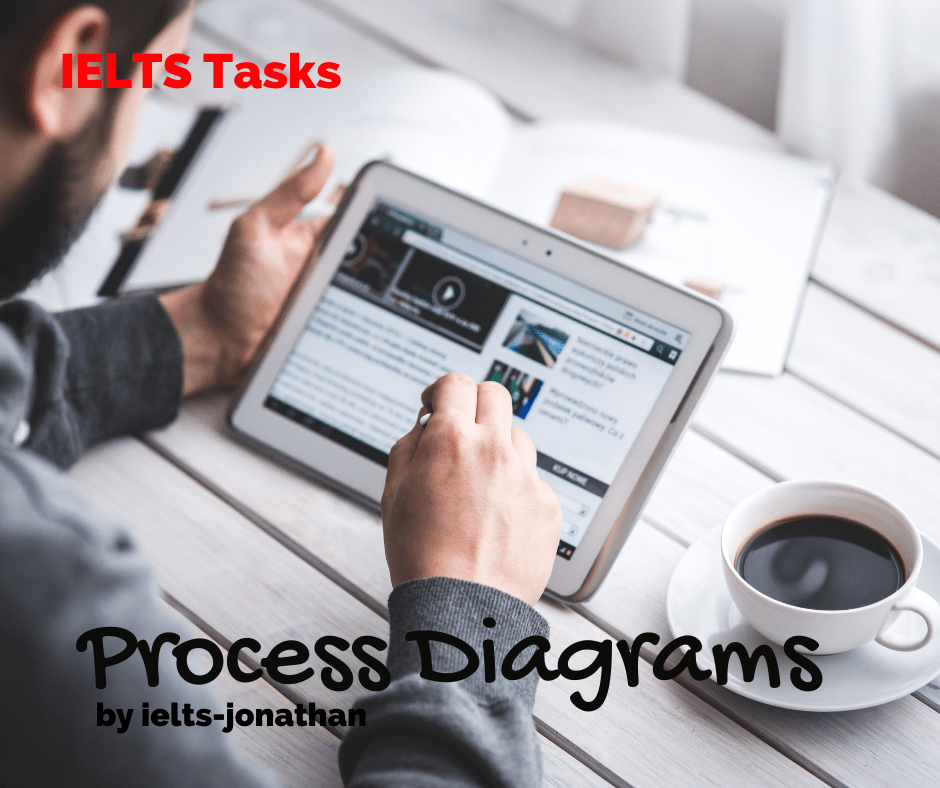An overview of general and IELTS preparation resources
If you are at or around a pre-intermediate level of English, one of your first steps towards IELTS success should be improving your current level of English.
To get a 6.0 or above in the IELTS test, you need to be at an intermediate level of English at least.
Improving your level of General English
Your first strategy should be working on improving your everyday reading and listening. Doing this will naturally improve your speaking and will make your writing better.
IELTS is a difficult test and good exam strategies and lots of learning tips are not enough – you need to have good working knowledge of English first and foremost.
IELTS preparation mistakes
The single biggest student mistake I see is to focus only on IELTS.
Students do lots of IELTS practice tests but forget that improving their general English level and becoming aware of English are some of the best steps to be successful.
So, here are some very effective ways I recommend to improve your general English level.
Read as much English as you can.
It can be a chore, but reading is an essential skill for IELTS.
You also need to comprehend questions in the speaking, writing and the listening sections of the test, as well as the reading section!
Reading as much as you can will help you to build your vocabulary, and you will also see how English is used naturally. Record new vocabulary on flashcards.
You can use these to revise new words and to test yourself. Anki is a great tool for creating flashcards online which you can later use on your phone.
Great for leaning vocabulary!
Watch films and movies
Netflix and TV shows with English subtitles can be useful.
You can download subtitles from sites such as Subscene, Sub Loader and Movie Subtitles.
With some channels you can switch on background commentary for the deaf.
This gives you more descriptive language and vocabulary than you would get normally. When you are confident enough, even better is to watch without subtitles to improve your response time and reaction to hearing English.
Write in English
Write in English every day, e.g. by writing a diary, keeping a blog or communicating with an online community such as people on a Facebook group that share an interest with you.
Improve your speaking
Try the ‘shadowing’ technique.
This involves repeating what someone has just said in English. This will help with natural pronunciation, intonation, as well as word and sentence stress.
This will improve your confidence too!
Find an English tutor online. They can help you to improve your writing and speaking.
Speak English every day
Create videos for social media, talk to yourself, record yourself on an app or even talk to your pet!
A favourite app at the moment is Flipgrid.
I’ve used this app to share speaking questions as well as recording and rating responses.
It’s fun and really easy to use!
Read and listen to IELTS-style materials
I really recommend reading lots of IELTS-style texts, and listen to lots of IELTS-style audio recordings.
These will help you to improve your English.
You will also find out about the kinds of topics that come up in the IELTS test.
It’s important to focus especially on topics related to education, health and the environment.
These are the topics that frequently come up in the IELTS test.
However, the best thing you can do is improve your reading speed and vocabulary in general.
This means reading something that interests you whether that’s online or from a newspaper, book or magazine!
Be a good all-rounder
Here are some recommended websites for reading and listening materials I’ve used with past students:
BBC Radio 4: The Interview Archive
Next, understand the IELTS format and process
You can prepare for the IELTS by finding out everything you can about the test and by becoming familiar with the exam format.
Read through some exam preparation materials – you can find these online and in bookshops and look at YouTube for videos about the IELTS.
You should study the exam format, so you know what the test involves.
Get to know the different types of questions in the exam.
For writing, read some sample essays.
Practice – the slow way
Only use official tests.
Buy or download some IELTS practice tests then start to practice these tests.
At first, do not worry about finishing the test ‘on time’ or doing it under exam conditions. Instead, relax and practise slowly.
However, be aware that not all online materials are useful or accurate. I’ve found many resources that are full of simple mistakes and spelling errors, so try to only use official tests for practice.
Try a reading test or a listening test.
Think carefully about the question, think about the answer, and then check your answer in the back of the book. If you get the answer wrong, find out why.
Use the tape script that’s available with official test materials to check and find out why an answer is correct.
Tape scripts are always available with official materials.
Analyse your mistakes.
Learn from your mistakes.
In other words, don’t just do lots of practice tests; instead, develop the skills and strategies you need to answer the questions.
Train yourself, don’t test yourself.
Go for quality, not quantity.
Find your weak areas
Identify your weak areas and try to improve in these areas.
If your weak area is writing, practise writing IELTS-style essays and try to get feedback on them.
If you are weak at speaking, find a speaking partner or an IELTS tutor.
Build your IELTS vocabulary
To succeed in the IELTS exam, you need to have a wide vocabulary.
This means having a good level of general English, but it also helps to know lots of words and phrases connected to common IELTS topics, such as education, health and the environment.
So make sure you grow your vocabulary for IELTS.
Read the websites I suggested in section 2. You can also use reading and listening tests to help you learn IELTS vocabulary – simply learn the words you don’t know that you came across in these tests.
Join an IELTS study group
The IELTS MOCC is a very good one.
People will often share ideas and give help to each other on these groups. You can often get your IELTS writing checked by someone in one of these groups and you can share information and tips with each other
If you’re looking for a study group for writing, then you can join a feedback group.
Practice – the fast way
Once you have practised some IELTS tests slowly, and developed an understanding of the question types and strategies for answering, you can start to practise quickly – start to time yourself.
Good time management is essential on the IELTS test – the reason many candidates fail to get the score they need is because they don’t finish the tests in the time given. So practise timed tests – but only when you have tried the other 7 methods first!
If you found this post useful, please leave a comment and share.
Good Luck with you test preparation!
Jonathan
I’m Jonathan
I’ve taught IELTS and University English in more than a dozen universities and schools around the world.
I’m a parent, traveller and passionate about language teaching and helping students achieve their dreams.
Whilst living in Austria or working in Asia, I run IELTS courses to help students get to where they want to be.
If you are serious about IELTS, connect with me to see how I can help you.





Was this helpful? Leave a comment :)